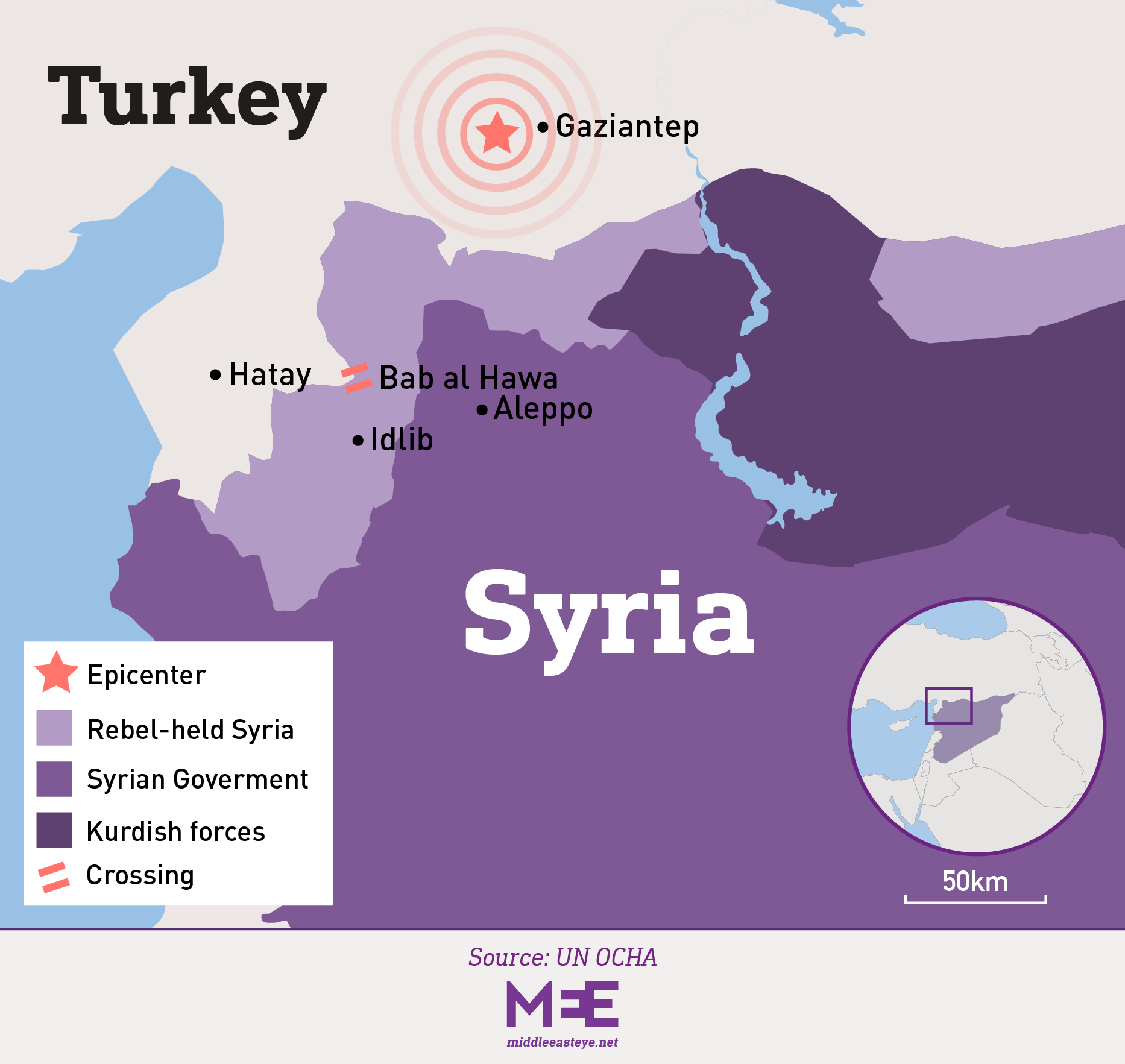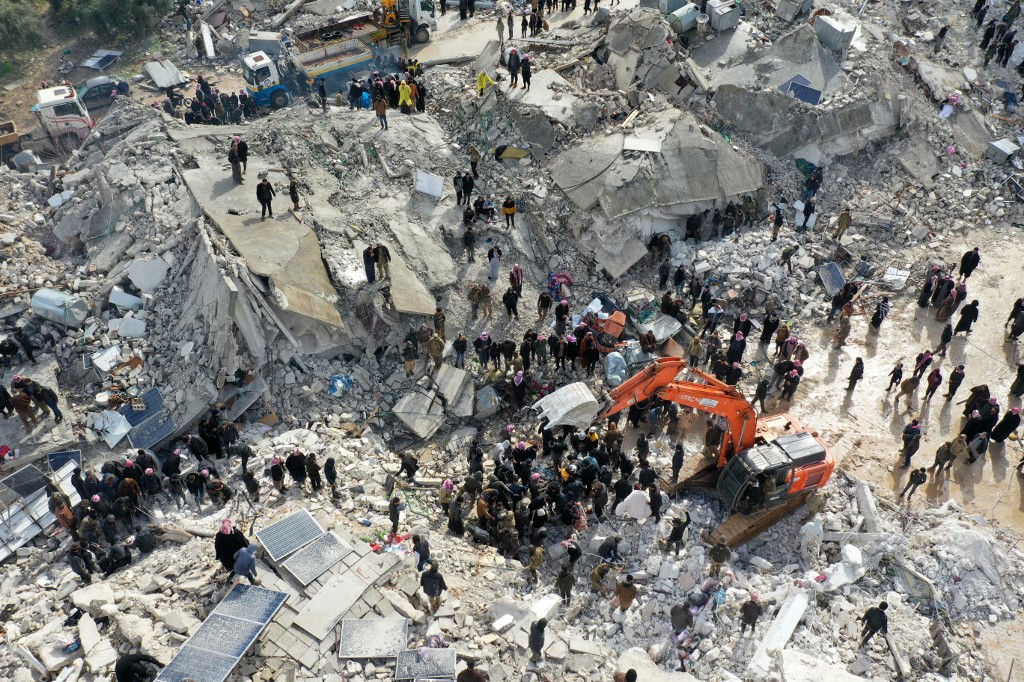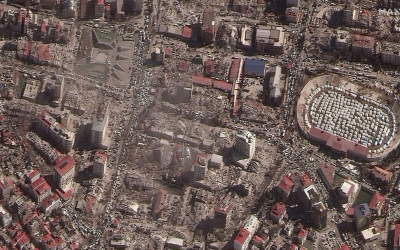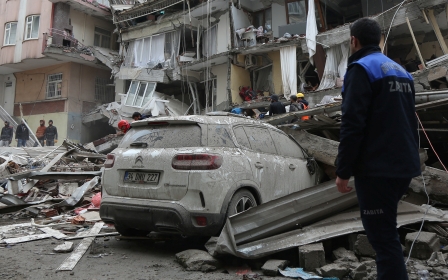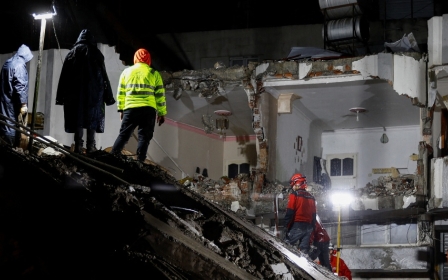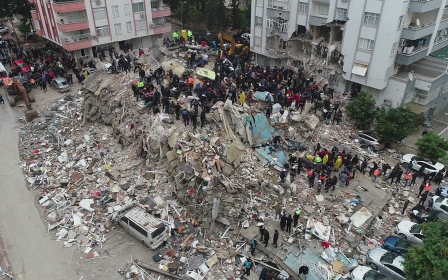Syria: Thousands at risk of freezing to death after quake halts cross-border aid
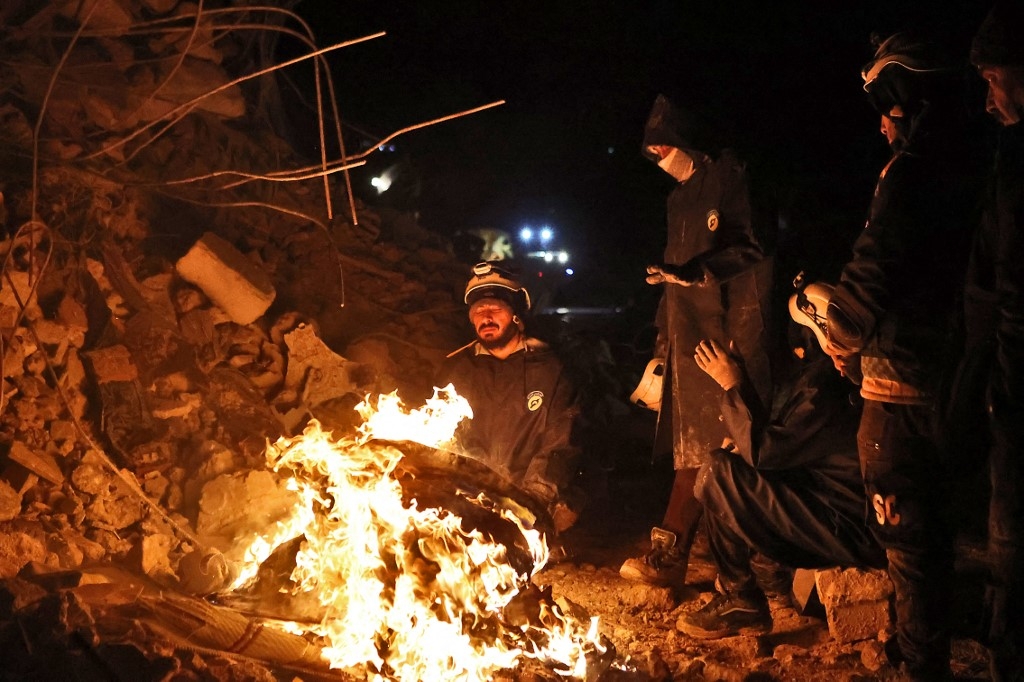
Aid agencies are warning of a looming humanitarian catastrophe in northwest Syria after Monday's devastating earthquake halted the flow of critical UN aid from Turkey to rebel-held areas.
The earthquake, which has claimed the lives of at least 4,000 people in both countries, decimated buildings and apartment blocks in Idlib and northern Aleppo, forcing many internally displaced Syrians to seek refuge in open fields and under trees amid freezing weather conditions.
'Thousands like me and my family are camped in the middle of a field, praying and waiting for no more earthquakes'
- Ahmed Aziz, Big Heart Foundation
Representatives from three aid agencies told Middle East Eye that the damage caused to roads leading to and from the Bab al-Hawa crossing had severely disrupted crucial aid deliveries, compounding the crisis.
The Bab al-Hawa border crossing is the sole lifeline for millions of people in Syria's northwest who live in areas out of Syrian government control.
With the crossing governed by the local municipality in Turkey's Hatay province, the epicentre of the earthquake, the aid workers said it was unclear when full services would resume and how help would reach those affected.
New MEE newsletter: Jerusalem Dispatch
Sign up to get the latest insights and analysis on Israel-Palestine, alongside Turkey Unpacked and other MEE newsletters
Ahmed Mahmoud, Islamic Relief's country director for Syria, told MEE that Turkey had already halted the transfers of critical hospital patients as it grappled with the aftermath of the deadly quake.
"A third of all casualties from Monday's earthquake are in Hatay, meaning local authorities are stretched at the moment and doing the best they can to help the injured in Turkey," said Mahmoud.
"The earthquake has destroyed roads, the port, and damaged the local powerplant, meaning areas near the Turkish border in Syria have had no power to cook food and heat their homes."
According to Mahmoud, many internally displaced persons (IDP's) were now being forced to seek shelter once again, or play host to those who had lost their homes.
"Before it was people in buildings helping the less well-off, and now it's people living in tents assisting those who live in buildings because they are no longer safe," he said.
Hamzah Barhameyeh, a spokesperson for World Vision, told MEE that while food insecurity was a big concern, the bigger crisis facing many aid agencies was the freezing temperatures that had gripped the region.
"Thousands of Syrians will be sleeping outside after they left their homes behind, fearing more collapsed buildings and aftershocks," said Barhameyeh.
"Temperatures in northwest Syria have sometimes reached less than five degrees Celsius, as heavy rains are falling on internally displaced camps."
'Situation is going to get worse'
Ahmed Aziz, a programme director for the Big Heart Foundation, said roads decimated by the earthquake had made it difficult to coordinate rescue efforts, with roadblocks hampering rescue efforts in Afrin, where he is based.
He said that aid agencies hadn't planned for an earthquake, and were previously concerned with how to navigate attacks by Syrian government forces.
"We have suffered immensely over the last decade, but nothing could prepare us for something like this," Aziz told MEE.
"It's ironic that the safest place for my family to be right now is under a tent instead of a building.
"Thousands like me and my family are camped in the middle of a field, praying and waiting for no more earthquakes. Many are burning anything they can get their hands on just to stay warm."
Mohamed Yakoob, an independent aid worker in the Syrian city of Azaz, also fled with his family when the earthquake struck.
Now holed up inside his car with a few belongings, he said the earthquake was a completely new trauma Syrians like him were experiencing.
"We have been bombed and displaced, but never faced a catastrophe like this where the building could collapse on top of us at any given moment," he said.
"This earthquake is an entirely new trauma we, as Syrians, are experiencing."
Since the quake, a blackout has gripped his area after a Turkish powerplant that supplies the area with energy was damaged on Monday.
"Wherever you go, there is damage. There is nothing left."
Aid agencies are now bracing for the worst, with temperatures expected to get colder in northwestern Syria.
With many now stuck in tents, Mahmoud said his NGO's biggest concern was people dying from the freezing temperatures and potentially suffocating from toxic fumes emanating from fires Syrians were burning to stay warm.
"We are already receiving reports of casualties among children and the elderly falling ill and dying because of the cold," said Mahmoud, who is on the Turkish border with Syria monitoring the situation.
"People in tents are burning anything they can find. Some are accidentally setting their tents on fire or suffocating from the fumes they are burning to stay warm inside the tents."
"There is a snowstorm forecasted for the coming weeks, and with people already displaced and sitting in tents, the situation is going to get worse."
This article is available in French on Middle East Eye French edition.
Middle East Eye delivers independent and unrivalled coverage and analysis of the Middle East, North Africa and beyond. To learn more about republishing this content and the associated fees, please fill out this form. More about MEE can be found here.


